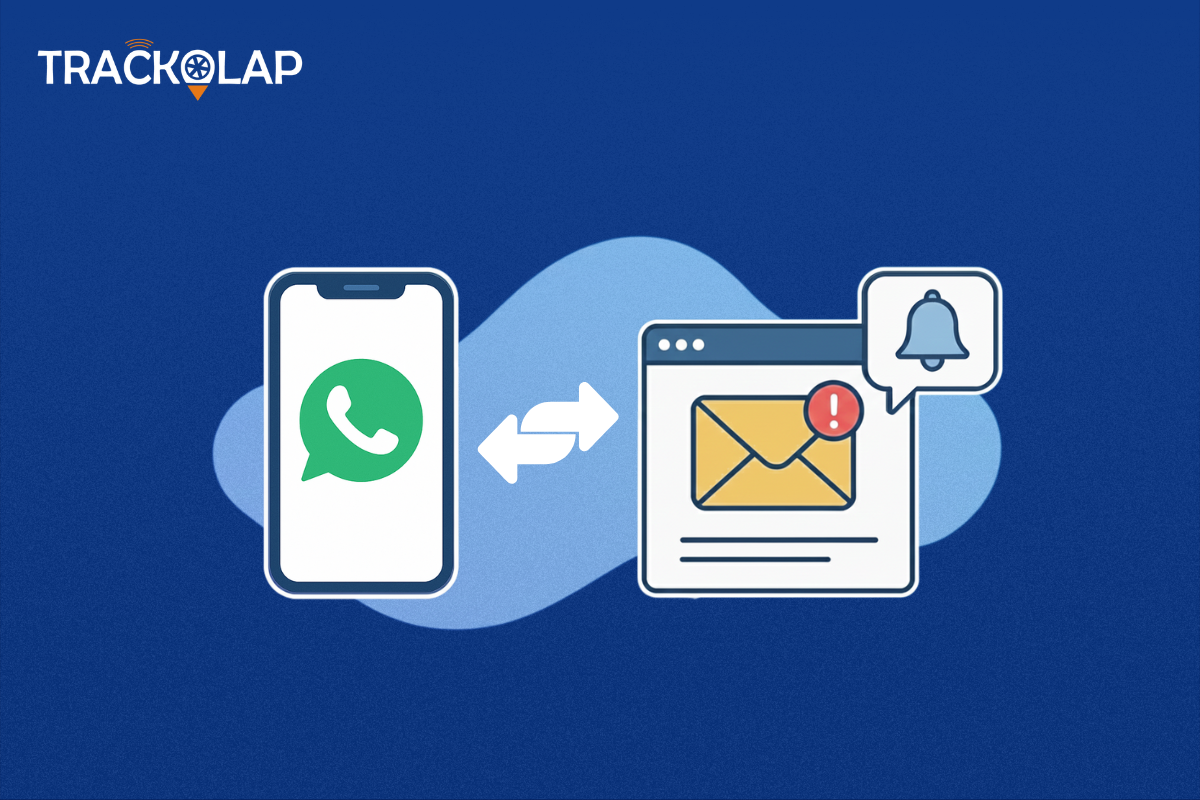
How to Automate Lead Management Process with Lead Automation Software?
In today’s fast-paced business environment, having efficiency and effectiveness in your sales operations is extremely important. Field sales workflows require constant effort and tracking. Still, one area wherein you can automate operations includes lead management, as manual procedures are time-consuming and often lead to missing hot opportunities. Thanks to lead automation software , from automating varied workflows to improving workflow efficiency and customer experience - it is a one-stop shop solution!
In addition, lead management software empowers sales teams to focus on building customer relationships and closing more deals. It automates the process of data entry, lead scoring, and follow-up activities and frees up your time to ensure you implement strategic initiatives at the right time. By automating these procedures, businesses can ensure that leads are nurtured effectively, minimizing the risk of losing potential leads due to an unaligned approach.
Furthermore, lead automation software offers valuable insights into your lead behavior, and overall performance under a centralized dashboard. By accessing advanced analytics, and reporting features, businesses can monitor key metrics, identify emerging trends, and make informed decisions to streamline sales strategies. This approach will allow your team members to refine lead generation efforts, target high-quality prospects, and enhance sales operations efficiency.
Sounds too good to be true, isn't it? In this guide, we will help you discover essential aspects, and detailed steps to automate your lead generate procedures with robust features of centralized lead tracking software.
What is Lead Management?
Lead management identifies, tracks, and converts leads into customers throughout your sales funnel. This process involves a few stages such as:
Lead generation
Lead qualification
Lead prioritization
Managing leads across diverse operations and strategies can be difficult if you do not have access to the updates from your field sales employees. That’s where lead management software comes to your rescue. It enables sales managers to constantly track employee movements through live tracking, ensure employees engage with potential customers, and enhance chances of closing deals with accurate insights.
Importance of Incorporating Lead Automation Software
Lead automation software can be your ideal solution to enhance your sales and marketing efforts. By automating repetitive tasks, such as data entry, lead scoring, and follow-ups, you can save time, improve efficiency, and focus on streamlining sales operations to upscale your business. This software helps you effectively nurture leads, personalize communication, and increase conversions.
Features
Lead Scoring
Lead management software prioritizes leads based on aspects like likelihood to convert, enabling sales teams to focus on the most promising opportunities
Lead Generation and Capturing
Lead automation app automatically captures and stores data of leads from various sources, which reduces manual effort and ensures no leads are missed.
Lead Nurturing
Automates customized email campaigns and content delivery to nurture leads across the sales funnel
Data Management and Analysis
Centralizes lead data, and offers valuable insights into lead behavior and campaign effectiveness
Integration with CRM and Marketing Tools
Easily connects with existing systems, streamlining workflows and improving data accuracy.
Improved Customer Experience
A lead automation software provides a more personalized and timely experience for leads, which aids in improving overall conversion rates
Scalability
Lead tracking software helps in managing increasing lead volumes without compromising efficiency, ensuring growth and success
Time and Cost Saving
Minimizes manual tasks, and frees up sales teams from manual tasks or hassles or constant follow-ups and instead and allows them to focus on high-value activities
How to Automate Lead Management Process with Lead Automation Software?
Lead management is the comprehensive procedure of nurturing potential customers from the initial contact to the conversion stage, which can be time-consuming and resource-intensive. This is where lead automation software comes into play. Automating repetitive tasks and streamlining workflows, this technology empowers businesses to optimize their sales processes and achieve higher conversion rates.
Furthermore, lead automation software manages everything from capturing leads to qualifying them and following up. It automatically categorizes and prioritizes leads based on predefined parameters, ensuring that the most promising opportunities receive timely attention. Additionally, this software can send personalized automated emails and messages to nurture leads throughout the sales cycle, increasing the likelihood of conversion.
1. Capture Leads Automatically
Lead tracking software enables businesses to capture leads from various sources like website forms, social media, events, etc. These leads are then automatically added to your CRM or marketing automation platform. This ensures no leads slip through the cracks, and you have a centralized database with which to work.
By automating lead capture, you can quickly reduce manual data entry and ensure leads are processed rapidly. This improves lead response times and increases the chances of converting them into customers. Features: Features like lead scoring help prioritize high-quality leads.
2. Qualify Leads Based on Predefined Criteria
Lead tracking software enables sales managers to define lead qualification criteria based on demographics, firmographics, behavior, etc. Once a lead meets these criteria, it is automatically moved to the next stage of the sales funnel. This approach ensures only qualified leads are passed on to sales, which reduces the wasted effort of field sales employees.
Automated lead qualification offers valuable insights into your ideal customer profile. You can refine your targeting and messaging by evaluating the attributes of leads that have the potential to convert. This can help you achieve higher conversion rates and a more efficient sales process.
3. Nurture Leads with Personalized Content
Lead nurturing is another crucial aspect of converting leads into customers, but it can be time-consuming. Lead automation software allows you to create targeted nurture campaigns based on lead behavior, interests, and buyer journey stages. These campaigns foster personalized content at scale, keeping your brand top-of-mind and moving leads closer to a purchase.
Additionally, automated lead nurturing ensures leads receive relevant information when needed. By offering value at every stage, you build trust and credibility, making leads more likely to choose your product or service when they're ready to buy.
4. Route Leads to the Right Sales Rep
Assigning leads to the right sales rep is critical for maximizing conversions. Lead management software allows you to create rules-based lead routing based on location, industry, lead score, and more. This ensures leads are assigned to the rep best equipped to handle them, improving response times and conversion rates.
Automated lead routing also enables managers to distribute leads evenly across your sales team, preventing any one rep from becoming overburdened. This results in faster follow-up and more personalized attention for each lead. Access features like round-robin or territory-based routing to optimize your lead distribution evenly.
5. Track Lead Performance with Robust Reporting
Lead automation app provides comprehensive reporting on lead performance, allowing you to track key metrics like lead volume, conversion rates, and revenue generated. This data-driven approach allows businesses to identify bottlenecks in their sales funnel and optimize their lead management process for better results.
By automating lead reporting, you can eliminate the need for manual data aggregation and analysis. This frees up time for your team to focus on high-value activities like lead follow-up and deal closing. Many lead automation tools also offer features like custom dashboards and real-time alerts to inform you of significant developments in your lead pipeline.
6. Automate Follow-Up Tasks and Reminders
Lead automation apps can significantly streamline follow-up processes by automating tasks and setting reminders for your sales team. This application automatically schedules follow-up emails, calls, or meetings when a lead is captured, ensuring no lead is neglected. This is particularly useful in maintaining engagement and keeping leads warm throughout the sales cycle.
Automated follow-up tasks not only save time but also ensure consistency in communication. Sales reps can focus on building relationships rather than worrying about remembering to follow up. Additionally, automated reminders help your team stay organized, ensuring timely interactions that can lead to higher conversion rates and improved customer satisfaction.
Top KPIs To Track in your Lead Management Process
The lead management process is ineffective if you fail to implement the correct set of Key Performance Indicators (KPIs) to evaluate leads’ conversion effectiveness. Let us look closely at the lead management KPIs that you must monitor to enhance lead numbers, and lead quality, and experience ultimate sales through lead management software
KPIs
How to Measure?
Lead Conversion Rate
The percentage of leads that become customers.
Number of customers / Number of leads
Lead Response Time
The average time it takes to respond to a new lead.
Total response time / Number of leads
Lead Quality Score
A score assigned to a lead based on their potential to become a customer.
Based on factors like demographics, behavior, and engagement
Customer Acquisition Cost (CAC)
The cost of acquiring a new customer.
Total cost of lead generation and sales / Number of new customers
Customer Lifetime Value (CLTV)
The total revenue a customer generates over their lifetime.
Average revenue per customer * Average customer lifespan
Sales Cycle Length
The average time it takes to close a sale.
Time taken to close a sale / Number of sales
Sales Productivity
The efficiency of the sales team
Revenue generated per sales representative
Final Takeaway
Automating your lead management process with lead automation software can enhance your sales efficiency and conversion rates. You can streamline tasks like lead capture, scoring, nurturing, and distribution by leveraging advanced technology. This saves time and resources, and ensures that leads are qualified and engaged at the right time. With automated workflows, you can provide personalized customer experiences, improve communication, and ultimately increase your revenue.
Do you want to learn more about lead management solutions? Contact our team today or schedule a demo call right away!






























 Back to Blogs
Back to Blogs










 D-5 Sector-59, Noida, Uttar Pradesh (India)
D-5 Sector-59, Noida, Uttar Pradesh (India) contactus@trackolap.com
contactus@trackolap.com 7011494501
7011494501










